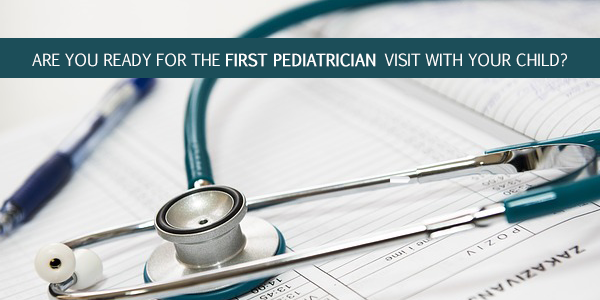The first visit to the pediatrician will come up much sooner than you think. Usually this visit is for one of the vaccinations unless you are taking the baby for any specific check-up.
We all have our inhibitions about the first pediatrician visit with our child, especially if you are a first time mommy. It is normal to brood over your share of fear, questions and inquisitiveness. Here are a few things that will iron out the any hiccups.
Prepare your questions in advance. There will be many questions in your mind so it is best to write them down or memorize them lest you forget about anything.
- Questions should be pertaining to the baby only
- Don’t ask too many questions as it is easy to get distracted when one question leads to another.
- Let the doctor finish answering your 1st question completely before you ask the next one
Be prepared to wait for a while. While most clinics will give you an appointment, it is still possible that you may have to wait with your baby for formalities like getting paperwork filled or allowing for emergency visits at the doctor’s.
- Have the dad or a grandparent accompany you so you have a helping hand with the baby.
- Feed the baby before the doctor’s visit unless specified otherwise by the doctor
Preparing the baby. Since the this is the 1st visit, it best to dress the baby simply in clothes that have buttons in the front so that the doctor can have easy access to all parts of the body.
- Do carry extra sets of diapers and clothes
- If the baby is bottle fed, carry enough for 2-3 hours. Take the time spent in the commute into consideration as well.
- Talk to the baby in reassuring voices and offer plenty of cuddling before and after the visit
Prepare the paperwork: Visiting the doctor for the 1st time may feel like you are preparing for a full blown vacation, but remember that it is better to be prepared for any eventuality than not being prepared for it.
- Carry all paperwork related to the birth, your pregnancy files, medical history and your baby’s discharge papers that have the birth weight or complications during pregnancy.
- It is best to have the dad or the grandparent prepare the paperwork and submit it to the clinic while you wait with the baby in the car or a waiting room
Inside the clinic. The primary investigation is done by a nurse.
- She will undress the baby and put her on a weighing scale to measure her weight. If the baby cries during this, speak to her in a calming voice so she knows you are nearby.
- It is normal for babies to lose weight after delivery but they will gain it right back in the first month itself
- The nurse will also measure the head circumference and height of the baby.
Meeting the doctor: Every doctor has a different approach when it comes to interacting with the baby and the parents. Some will examine first and then ask questions, others will continue speaking to you while examining.
- The doctor will check for reflective actions
- He will also check eyes, nose, ears and limbs for proper functioning. The umbilical cord will also be checked for healing or any signs of infection
- He will ask you about the baby’s feeding pattern
If everything looks good at this stage, your doctor will educate about the vaccinations which are in order for your baby. He will also give you an immunization scheduler to help you track the vaccinations you have given him.
Questions you may have
- Feeding schedule and issues with latching on
- Sleep schedule
- Vaccinations and shots
- Stools frequency and consistency
- How many diapers should be changed?
- When should I call a doctor incase of fever?
- Are there any pain or fever medications I can safely give the baby?
- What is considered as emergency?
Don’t be shy or intimidated about anything else that comes to mind; there is no such thing as a silly question
